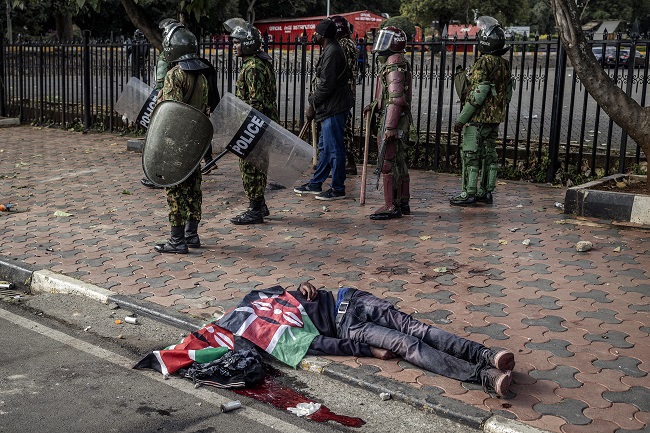Kenyan President William Ruto announced Wednesday that the controversial bill proposing significant tax hikes would “be withdrawn,” marking a dramatic reversal following violent protests that left over 20 people dead and resulted in the ransacking of parliament.
However, Ruto cautioned that the withdrawal of the finance bill would lead to a significant shortfall in funding for critical development programs aimed at assisting farmers, schoolteachers, and other sectors, as Kenya grapples with reducing its foreign debt burden.
“I concede and therefore I will not sign the 2024 finance bill, and it shall subsequently be withdrawn,” Ruto stated during a press briefing. “The people have spoken.”
Ruto’s administration was caught off guard by the intense opposition to the tax hikes, which sparked protests across the country last week. These largely peaceful rallies turned violent on Tuesday after lawmakers passed the legislation, prompting police to fire live rounds into crowds that stormed and partially set fire to the parliament complex.
The Kenya National Commission on Human Rights, a state-funded organization, reported 22 deaths and 300 injuries, announcing plans to launch an investigation.
The protests were fueled by growing frustration over the rising cost of living, which intensified as lawmakers debated the bill containing the tax increases. Ruto’s government, facing severe financial constraints, argued that the tax hikes were necessary to service Kenya’s enormous debt of approximately 10 trillion shillings ($78 billion), equivalent to about 70 percent of the country’s GDP.







Ruto’s administration has been taken by surprise by the intensity of opposition to its tax hikes, with protests breaking out across the country last week.
The largely peaceful rallies turned violent on Tuesday when lawmakers passed the legislation and police fired live rounds into crowds that ransacked the partly ablaze parliament complex.
The state-funded Kenya National Commission on Human Rights said it had recorded 22 deaths and 300 injured victims, adding that they would launch an investigation.
Frustration over the rising cost of living spiralled last week as lawmakers began debating the bill containing the tax hikes.
Ruto’s cash-strapped government said the increases were needed to service the country’s massive debt of some 10 trillion shillings ($78 billion), equal to roughly 70 percent of Kenya’s GDP.
